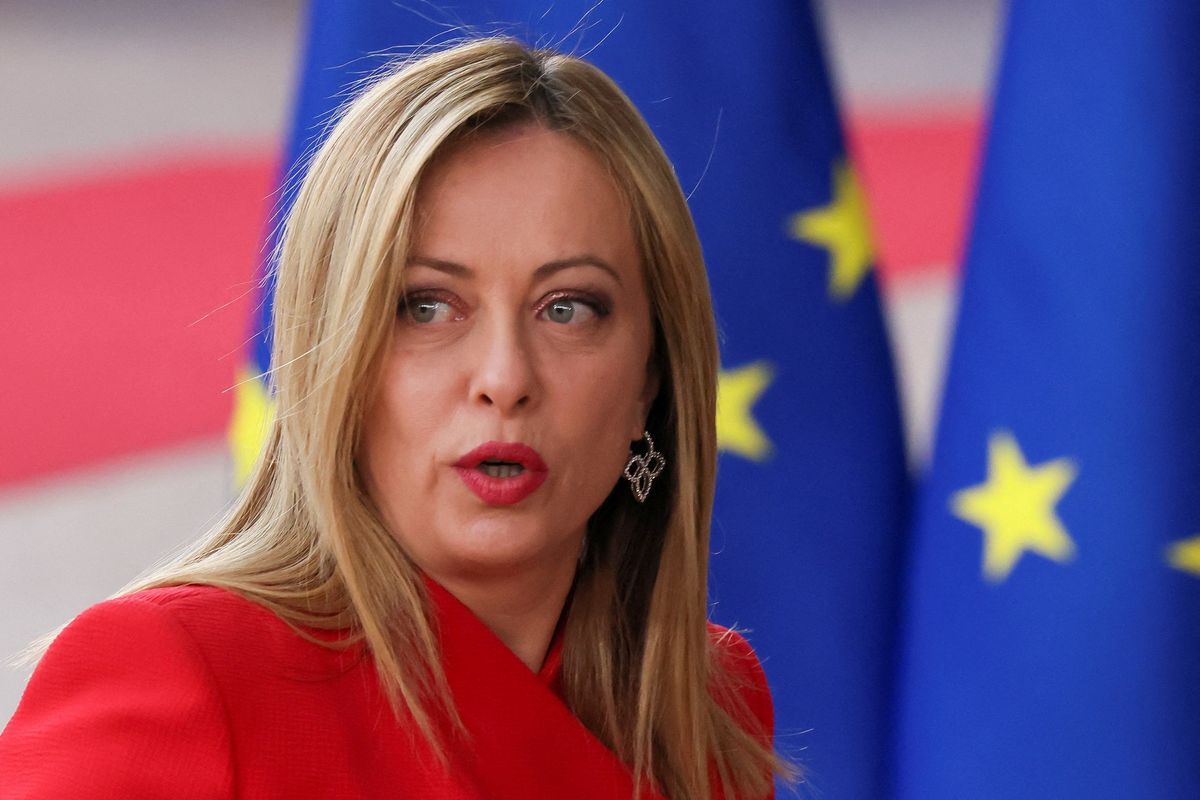Is Italy breaking up with China's Belt and Road Initiative?
In 2019, Italy became the first (and only) G7 nation to hop on the BRI train with China.

A few minutes every morning is all you need.
Stay up to date on the world's Headlines and Human Stories. It's fun, it's factual, it's fluff-free.
The backstory: Just a little refresher for you – China's Belt and Road Initiative (BRI) is a massive project that's all about connecting Asia, Europe and Africa through a network of infrastructure projects. In fact, China has spent a mind-boggling US$900 billion on it so far and has become the largest lender to developing countries worldwide.
In 2019, Italy became the first (and only) G7 nation to hop on the BRI train with China, and it's still riding that train today, thanks to then-Prime Minister Giuseppe Conte. The deal will auto-renew after March 2024 if either country doesn't bail out with a three-month written notice.
More recently: This partnership with China's BRI was supposed to boost Italy’s economy, but things haven’t quite worked out as expected. Sure, Italy's exports to China went up by €3.4 billion (US$3.7 billion) last year compared to 2019, but China's exports to Italy in the same period shot up by a massive €25.8 billion (US$28.1 billion). That's a big difference that shows there’s not much economic benefit coming out of this deal on the Italian side.
The development: So, with that, Italy might be saying "ciao" to China's BRI deal. That's what new Italian prime minister Giorgia Meloni reportedly told US House Speaker Kevin McCarthy during their meeting in Rome last week. She did say it's not 100% confirmed yet, and Italy is still hashing out the deets and timing of its exit if it decides to pull out. Even though insiders said Italy is looking to dip out of the agreement by the end of the year, we probably won’t hear any news about a decision before the G7 meeting next month in Japan.
The thing is, these insiders say that Meloni's advisers are worried about potential economic consequences from China if Italy stops participating. It's also worth mentioning that Meloni wasn't really a big fan of the BRI deal in the first place, according to Italian news agency Ansa on Wednesday.
Key comments:
“The two sides should tap further into potential in BRI cooperation and step up mutually beneficial cooperation across the board,” said Chinese foreign ministry spokesman Wang Wenbin to reporters at a press briefing on Wednesday.
"It's a delicate decision," said Italian Prime Minister Giorgia Meloni on Wednesday to Italian reporters during a visit to Prague, according to news agency Ansa. She also mentioned that she "didn't agree" with the pact signed in 2019 by then-Prime Minister Giuseppe Conte, as reported by Ansa.
“Since becoming PM, she’s chosen to present herself as aligned with the U.S. on the Chinese front. Yet she’s under pressure from her coalition partners, [Lega’s Matteo] Salvini and [Forza Italia’s Silvio] Berlusconi, whose respective constituencies are softer on China being interested in closer economic ties through the Belt and Road initiative,” said Alberto Alemanno, professor of EU law at the H.E.C. business school to CNBC.
“Italy is stuck between a rock and a hard place, and what to do with the cooperation pact is a real diplomatic conundrum for Meloni,” said Francesca Ghiretti, an analyst at the Mercator Institute for China Studies research firm, in an interview. “Renewing it would send a very difficult message to Washington, but not renewing it would put a strain in relations with China.”




Comments ()